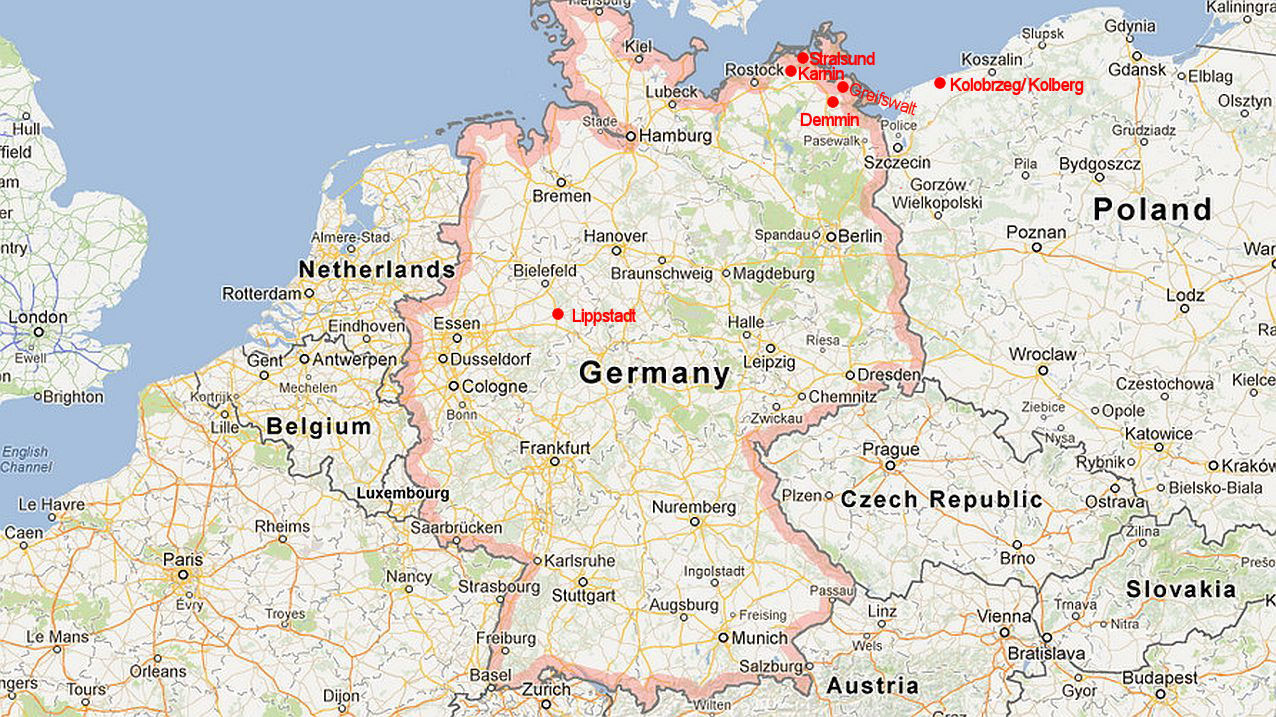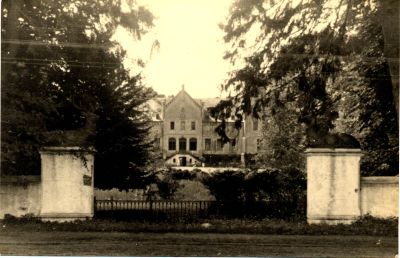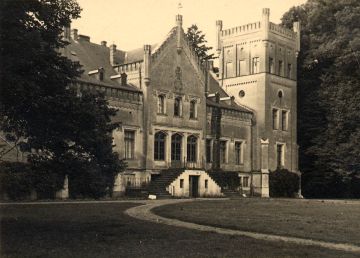Hi Tanja,
sorry, I didn’t realize you are located in the US – and I guess I am
more fluent in English than you are in German.
Ok, here we go again: I believe that it is indeed quite likely that we
are related.
Actually, my father’s family lived in Pomerania until 1945 – and was
only one part of a very widespread family. Here you can see where this
used to be:
http://de.wikipedia.org/wiki/Karnin_%28bei_Barth%29.
The earliest Henning we know of was Jacob Henning the Elder, who came
into Demmin/Pomerania in 1630.
We also have a rather complete family history – and now comes the “BUT”:
All these data are in a data base, but two years ago we had a crash in
one of my servers. Of course we have backups – but the change in the
application software has prevented me to simply dig this out and put it
back on the Web.
Since I am very active in research, politics etc., I shifted all these
ancestry research activities to a shelf where they have been
accumulating dust since then.
Your mail has set me to action this afternoon – please wait for another
mail in a few minutes.
Best regards
—
Peter Henning
HENNING? FROM WHERE?
( I found this here http://www.henning.org/eng-henning.php )
The name Henning is indigenous to the North German areas Mecklenburg, Hannover, Hamberg, Holstein and Pommern. Especially the towns Stralsund and Greiffswald, in Mecklenburg, near the Baltic Sea is well known as places where the name originated. Both towns formed part of Denmark up until the Thirty Years War (1618 — 1648).
Between the years 1300 and 1500 the name HENNING was used as a popular nickname for “the Son of John (Johannes)”. In the old Baltic dialect a rooster was called a “Hen” (hen = male, henne = female). The Baltic (or North German) “ing” was added to indicate that it was a name deduced from the name of a father or ancestor.
The name originated amongst noblemen and knights, such as1:
- Henning = Johannes Older, who lived during 1290 in the vicinity of Stralsund;
- Henning = Johannes Brunswick, who lived during 1305 at Kolberg. Today Kolberg is in Poland, but during 1305 it formed part of the country which is known today as Germany.
- Henning = Johannes Dotenberg (Knight) who lived during 1326 in the vicinity of Greiffswald. It is suspected that he was a descendant of Johannes Older.
- Earl Henning of Irkesleve who lived during 1330 in Haldslohe.
During the 13/14th centuries the descendants of these first Hennings spread over the areas today known as Germany, Denmark and Norway. All records from this time unfortunately were destroyed.
 |
During the 17th and 18th Centuries several Hennings moved elsewhere — also to the new world. Today we find one of the biggest Henning nizagara clans in South Africa. However, we find Henning families in almost every civilised country in the Western world.
A few Henning descendants, however, remained in the vicinity of Stralsund and prednisone Greiffswald. It is known that Jacob Henning (the old) was born during 1635 at Demmin (near Greiffswald). Jacob Henning and his descendants became known as the Henning Family of Karnin. Karnin is approximately 25 km from Stralsund. Jacob Henning and his descendants were big and wealthy property owners, who lived in a castle. This castle was confiscated during 1945, during the Second World War, by the communist government who took over Eastern Germany. Consequently this family spread over Western Germany.
  |
The Peter Henrich Henning Family League of South Africa is the owners of this website.
The Henning families of South Africa have been documented almost completely and their family trees and history can be consulted on this website. The Peter Henrich Henning Family League maintain prednisone a Family Museum and Documentation centre/Archive and distribute a Newsletter every three months (February, May, August and November) to members. News reports of interest to the family are published in the newsletters.
Hennings from other countries are envited to contact the League Secretary of the Peter Henrich Henning Family League for insertion of the particulars of their family on the website.
1Bahlow H.: “Deutches Namenlexikon”. Familien und Vornamen nach Ursprung und Sinn erklärt. München, 1977, p228